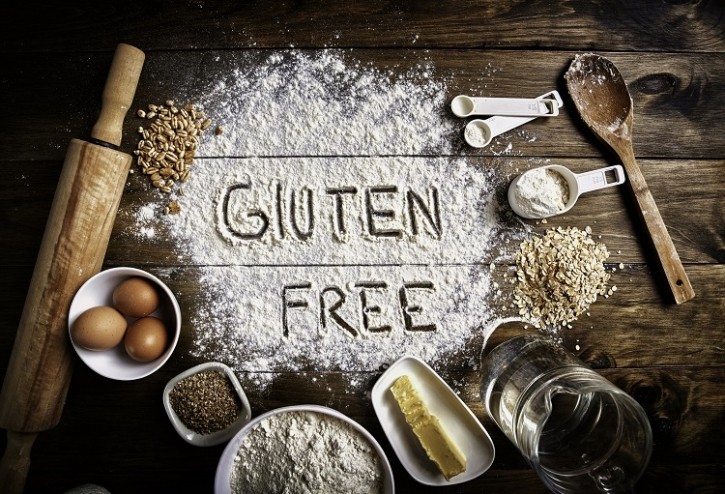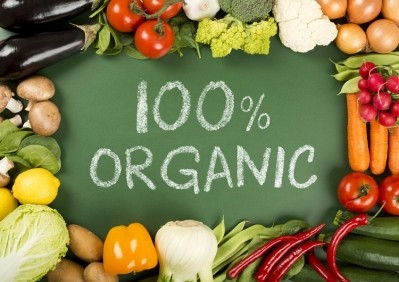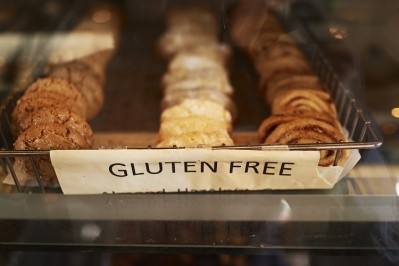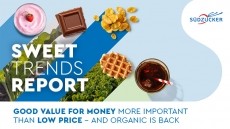Gluten-free is gaining popularity and sales are quickly rising

People choosing to eliminate gluten from their diet, either for medical reasons or as an aid to weight loss, have faced one major challenge… buying gluten-free foods and beverages. Because, while an estimated 78 million people globally suffer from celiac disease, an autoimmune disease where ingestion of gluten leads to damage to the small intestine, precious few gluten-free products are available to buy. In fact, the gluten-free aisle in the supermarket really isn’t an aisle at all, more a small section within an aisle where a handful of products reside.
Until now.
That’s right, it appears that food and beverage manufacturers are catching on to the fact that gluten-free could be big business. Not just because there are consumers who suffer with celiac disease, but because there are also many who have an intolerance to gluten, and others who simply wish to avoid it.
“Interest and enthusiasm around gluten-free diets continues to grow dramatically,” says Dr Robert H. Shmerling, senior faculty editor at Harvard Health Publishing.
And, according to market insight firm, Statista, the global market for gluten-free foods and beverages is expected to expand considerably over the next decade, reaching an estimated 14 billion USD by 2032. That's more than double its current value of 6.7 billion USD.
Brands such as Warburtons have noticeably developed their gluten-free ranges, in recent years.
“We want the whole family to be able to enjoy Warburtons products,” said a spokesperson for Warburtons, in response to the expansion of their gluten-free ranges.
The growing demand for gluten-free products has also sparked the launch of entirely new companies onto the market. Snack brand, D*MN GOOD, launched in 2023 and produces cookies which are "plant-based, clean label, gluten-free, and a source of fibre". And we doubt they'll be the last of the new arrivals as companies catch on to the gluten-free trend.
And this development is not limited to baked goods, which are most closely associated with gluten. Meal-replacement brand, Huel, is also leading the way in creating gluten-free products to satisfy the existing demand and growing trend.
“Huel Gluten-free was launched less than a year after the business launched (2016),” James McMaster, CEO of Huel, told FoodNavigator. “This new version was exactly the same as Huel Powder, but the oats were grown and processed in a gluten-free environment. Most of our powders contain ingredients that are naturally free from gluten, however due to supply chain challenges with handling oats we put in extra measures to ensure that the gluten free powder is suitable for celiac consumers, and we also offer a non-gluten free range for other consumers.”
And these decisions are, in part, being driven by consumers.
“This choice was made after customer feedback that they wanted a gluten-free option. One customer said ‘I love the idea of trying this but as long as it has gluten I can’t. Free-from lunches are hard to come by so something like this would be perfect,’” explains McMaster.

But while the gluten-free trend is growing, for reasons of both health and preference, the cost remains stubbornly higher for many food and beverage manufacturers.
“Unfortunately, the cost of baking gluten free products is far more expensive than our core wheat-based range,” a spokesperson for Warburtons told FoodNavigator.
But why is this, when gluten-free products have been produced for many years now?
“The cost of the ingredients to replace the gluten functionality is more and as we don’t bake that many, it’s difficult to reduce the unit cost. In our core range the process is automated and cheaper to run whereas the process for gluten free is more labour intensive and requires more staff. We also have no control over the prices that the supermarkets charge.”
But this could change in the future as gluten-free products gain popularity.
“Hopefully as more supermarkets order this range, we can reduce the cost of baking,” said a spokesperson for Warburtons.
However, in spite of this, some brands are adapting to the development of gluten-free products more successfully.
“There is a minor price difference for Gluten-free. At £1.68 per meal for our powder, it is 17p more per meal,” says McMaster. “In order for us to have a specific supply of gluten-free oats, the suppliers are required to follow stricter instructions, deeper cleandowns and perform laboratory testing to ensure this claim can be made, therefore the cost to us is slightly increased.”

Why has gluten-free been slow to grow?
It appears that food and beverage manufacturers have been slow to spot the strength of demand for gluten-free products. And there has been some clear frustration from consumers as a result of this, with one member on Reddit writing, “why don’t more gluten-free products exist, since so many people are gluten sensitive/celiac?” Furthermore, this comment was posted in a group called ‘gluten-free’, which boasts 175,000 members.
The processing challenges, and resulting costs, are the clear reason behind manufacturers reluctance to diversify into gluten-free, however the rewards promise to be equally high as the consumer base is ready and waiting.




























